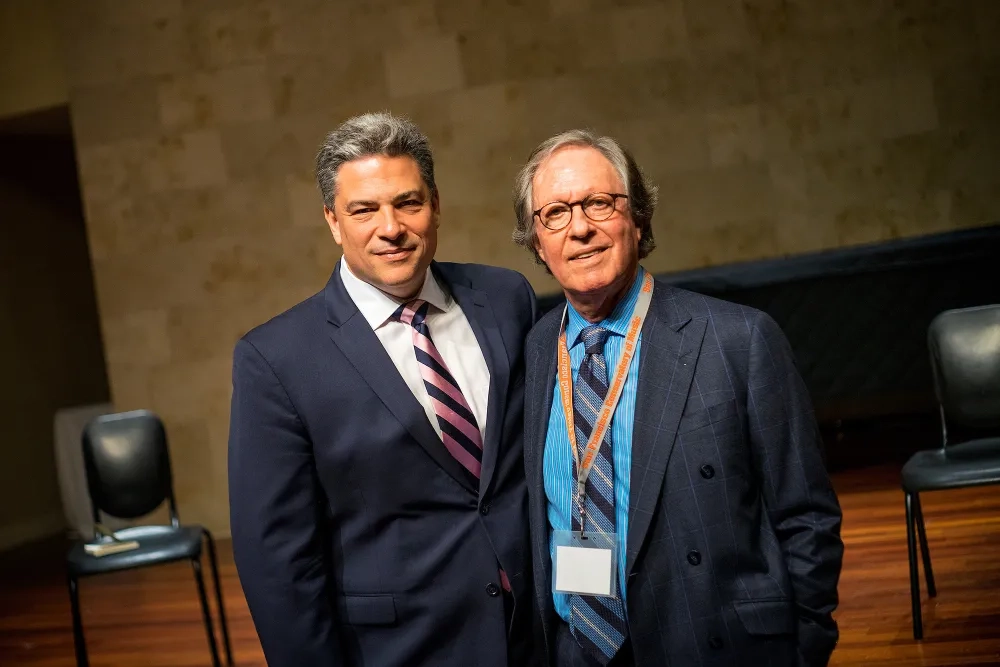SFCM Remembers Friend and Publishing Icon Stephen Rubin
News StoryRubin's work in the publishing industry stood on its own, but it was his creation of the Rubin Institute for Music Criticism to nurture the next generation of music writers that meant the most at SFCM.
The San Francisco Conservatory of Music today mourns Stephen Rubin, an arts advocate for the ages, who died Friday at a hospital in Manhattan after “a brief and sudden illness,” according to his nephew, David Rotter.
"Steve was brilliant, creative, innovative and unfailingly generous," SFCM President David Stull said. "He was entertaining beyond words, passionate about the school, eagerly stirred up conversation, and was fiercely devoted to the flag of SFCM and the San Francisco Civic Center. To me, Steve was a close, personal friend and a perpetual champion. He was a great friend in all of the ways we hope to have great friends, and I will miss him tremendously."
In the wider world, Rubin was best known as the publisher of some of the most acclaimed and best-selling books of the 20th and 21st centuries, including John Grisham's The Firm and Dan Brown's The Da Vinci Code. Arriving in the industry after working at The New York Times, Rubin worked for Doubleday, Henry Holt and Company, and Simon & Schuster, where, aside from the aforementioned blockbusters, he shepherded books by Laura Esquivel, Mitch Albom, and former President George W. Bush—among many others—to shelves. In 2018, while working at Holt, he published one of the definitive accounts of the Trump White House, Michael Wolff’s Fire and Fury, which he called "the wildest ride of his career."
But Rubin's other great love was music: Despite never having formally studied, he had an encyclopedic knowledge of opera and could identify the great singers of the form within a few notes. It was this love that led him to establish the Rubin Institute for Music Criticism in 2011, held since 2014 at SFCM.
Rubin was fiercely proud of the Institute, often referring to it as his greatest triumph. The biennial event drew top critics from the country's brightest journalistic outlets to San Francisco for keynote addresses and public concerts at the city's iconic performing arts institutions. A class of fellows from across the U.S. and Canada offered their criticism of the shows and the Institute culminated with the awarding of the $10,000 Rubin Prize in Music Criticism to one of them. The trickle-down effect was palpable: In 2022, there were more than 1,000 additional articles and reviews published throughout the world in 16 major outlets, many of them by Rubin-trained critics.
"It’s vitally important that we identify and nurture the next generation of classical music critics. The Rubin Institute plays a key role in that effort, offering invaluable experience and mentorship to an impressive group of emerging talents," said The Washington Post's Janice Page. Emery Kerekes, the 2022 winner, said, "I've gained friends whom I still talk to three times a week, and in the first year after the Institute, the connections I made gave me my first print story, my first cover story, and so many interviews with people my high school self would not believe."
Rubin's legacy lives on: Not only through his family and friends, but through the Institute, and wherever great music is played and written about.

